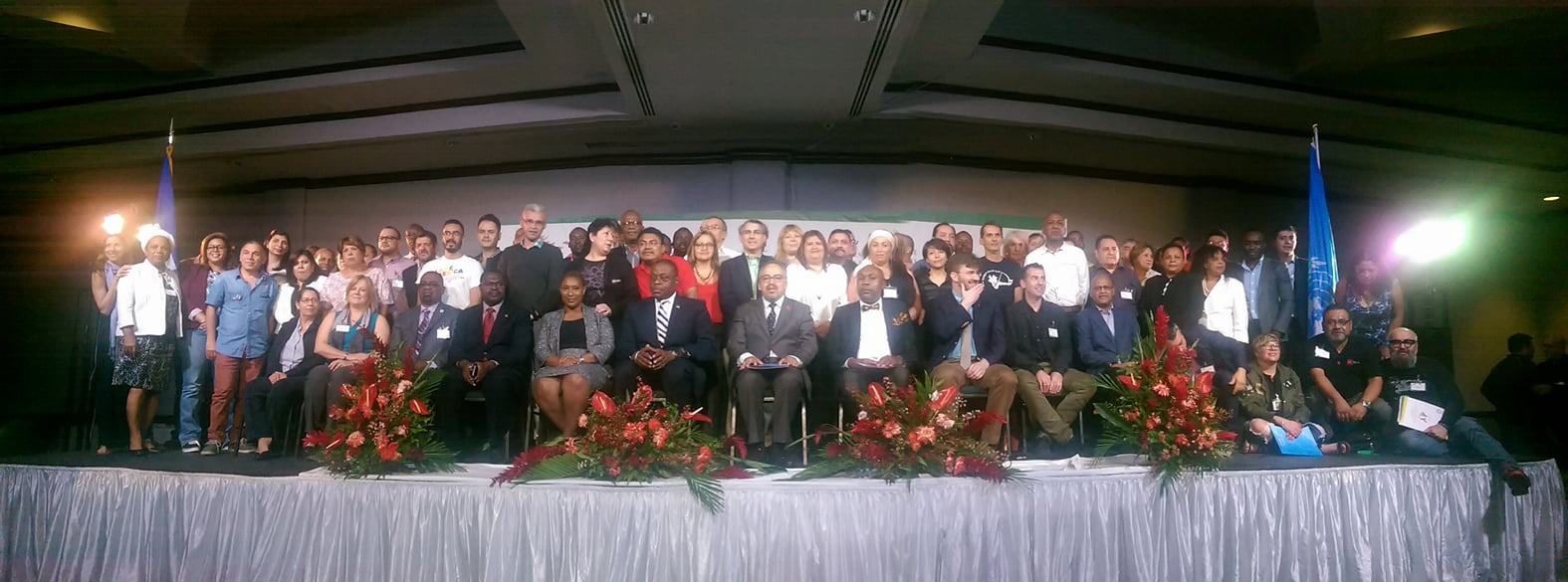
CRN+ calls for more involvement of PLHIV at LAC III Interim Chair calls for investment in age-appropriate comprehensive sexuality education and youth-friendly services.
The Third Latin American and Caribbean Forum on Sustainability of the HIV Response (LAC III), “Road to Ending AIDS in LAC: Towards Sustainable Regional Fast Track Targets” was held in Port-au-Prince, Haiti, from 6 to 8 November 2017.
The forum was organized as a collaborative effort by the Government of Haiti, in coordination with the Horizontal Technical Cooperation Group (GCTH), the Pan Caribbean Partnership against HIV and AIDS (PANCAP), the Minister of Health of Brazil, the Joint United Nations Programme on HIV/AIDS (UNAIDS), the Pan American Health Organization, the Global Fund Against AIDS, Tuberculosis and Malaria, the President’s Emergency Plan For AIDS Relief (PEPFAR), AIDS Healthcare Foundation (AHF), the Latin American Network of People Living with HIV (REDLA+) and the Caribbean Network of People Living with HIV and AIDS (CRN+).
As part of civil society representation, CRN+ made a poster presentation by the Interim Secretary, Mr Devon Gabourel, which focused mainly on the Greater Involvement of People Living with HIV in Ending AIDS. The CRN+ Interim Chair, Mr Winfield Tannis-Abbott ended the forum with some closing remarks that resonated with participants. He called for the scale-up of the Greater Involvement of People living with HIV (GIPA), ensuring support and full involvement and ownership by networks and communities of people living with HIV and the investment in age-appropriate comprehensive sexuality education and youth-friendly services for in-school, out-of-school and at-risk youth.
The overall objectives of the third forum were to review the progress and challenges towards meeting international and national targets; to discuss strategies to sustain the response in the medium and long-term including reflection on how to improve health systems effectiveness, efficiency and appropriate resource allocations; and to identify recommendations on how to close the resource gaps, specifically by increasing domestic investments.
WHAT IS PANCAP?
PANCAP is a Caribbean regional partnership of governments, regional civil society organisations, regional institutions and organisations, bilateral and multilateral agencies and contributing donor partners established on 14 February 2001. PANCAP provides a structured and unified approach to the Caribbean’s response to the HIV epidemic, and coordinates the response through the Caribbean Regional Strategic Framework on HIV and AIDS to maximise efficient use of resources and increase impact, mobilise resources and build the capacity of partners.
What are the Global AIDS Strategy 2021–2026 targets and commitments?
If targets and commitments in the strategy are achieved:
- The number of people who newly acquire HIV will decrease from 1.7 million in 2019 to less than 370 000 by 2025
- The number of people dying from AIDS-related illnesses will decrease from 690 000 in 2019 to less than 250 000 in 2025.
- The goal of eliminating new HIV infections among children will see the number of new HIV infections drop from 150,000 in 2019 to less than 22,000 in 2025.
What are the 95-95-95 Targets for ending AIDS?
- 95% of People Living with HIV know their HIV status;
- 95% of people who know their status on treatment; and
- 95% of people on treatment with suppressed viral loads.
HELPFUL LINKS:
Global AIDS Strategy 2021–2026, End Inequalities, End AIDS
https://pancap.org/pancap-documents/global-aids-strategy-2021-2026-end-inequalities-end-aids/
Caribbean Regional Strategic Framework on HIV and AIDS (CRSF) 2019-2025
https://pancap.org/pancap-documents/caribbean-regional-strategic-framework-2019-2025/
